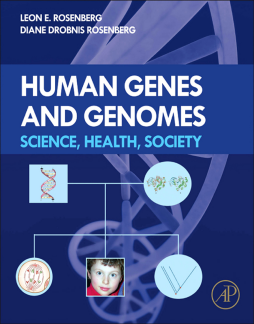
Additional Information
Book Details
Abstract
In the nearly 60 years since Watson and Crick proposed the double helical structure of DNA, the molecule of heredity, waves of discoveries have made genetics the most thrilling field in the sciences. The study of genes and genomics today explores all aspects of the life with relevance in the lab, in the doctor’s office, in the courtroom and even in social relationships. In this helpful guidebook, one of the most respected and accomplished human geneticists of our time communicates the importance of genes and genomics studies in all aspects of life. With the use of core concepts and the integration of extensive references, this book provides students and professionals alike with the most in-depth view of the current state of the science and its relevance across disciplines.
- Bridges the gap between basic human genetic understanding and one of the most promising avenues for advances in the diagnosis, prevention and treatment of human disease
- Includes the latest information on diagnostic testing, population screening, predicting disease susceptibility, pharmacogenomics and more
- Explores ethical, legal, regulatory and economic aspects of genomics in medicine
- Integrates historical (classical) genetics approach with the latest discoveries in structural and functional genomics
". . . a beautifully written and insightful genetics book that hits all the right notes. Major principles are illustrated in the context of real disease, both Mendelian and complex, which keeps the relevance high."
Michael J. Dougherty, PhD, Director of Education, American Society of Human Genetics
"This thoughtful and scholarly book, teaching about common traits and rare inherited disorders, is beautifully written and accessible to science students and non-science students alike."
Margretta Seashore, MD, Director, Genetic Consultation Service and Director, Biochemical Disease Detection Laboratory, Department of Laboratory Medicine, Yale University School of Medicine
"A master story teller and one of the founders of the field, Rosenberg tells the story of human genetics as few others can – anchored in history but with a fresh eye towards what the study of the human genome teaches us about genes and their importance for both biology and medicine."
Huntington F. Willard, PhD, Director, Duke Institute for Genome Sciences & Policy, Duke University
